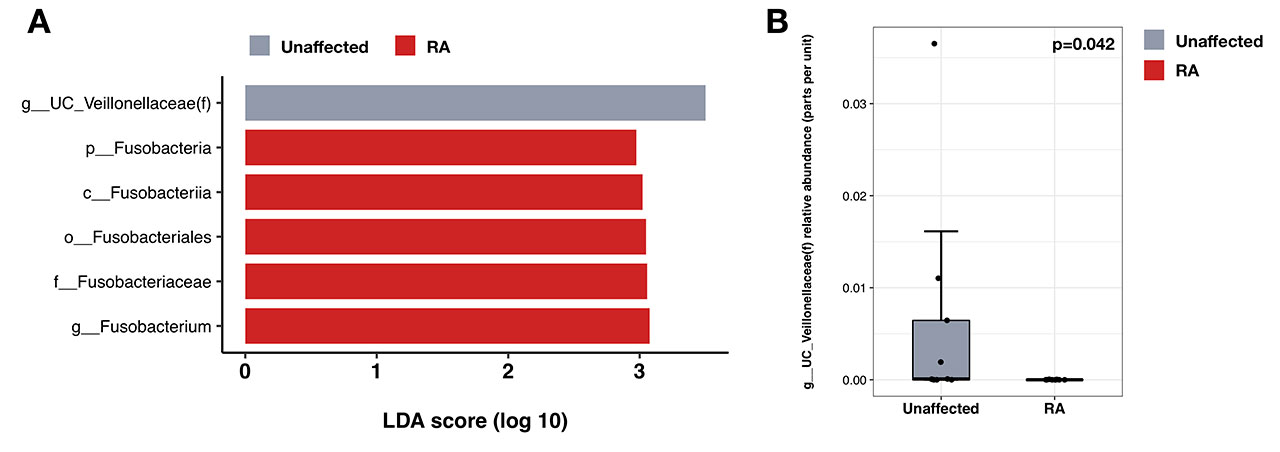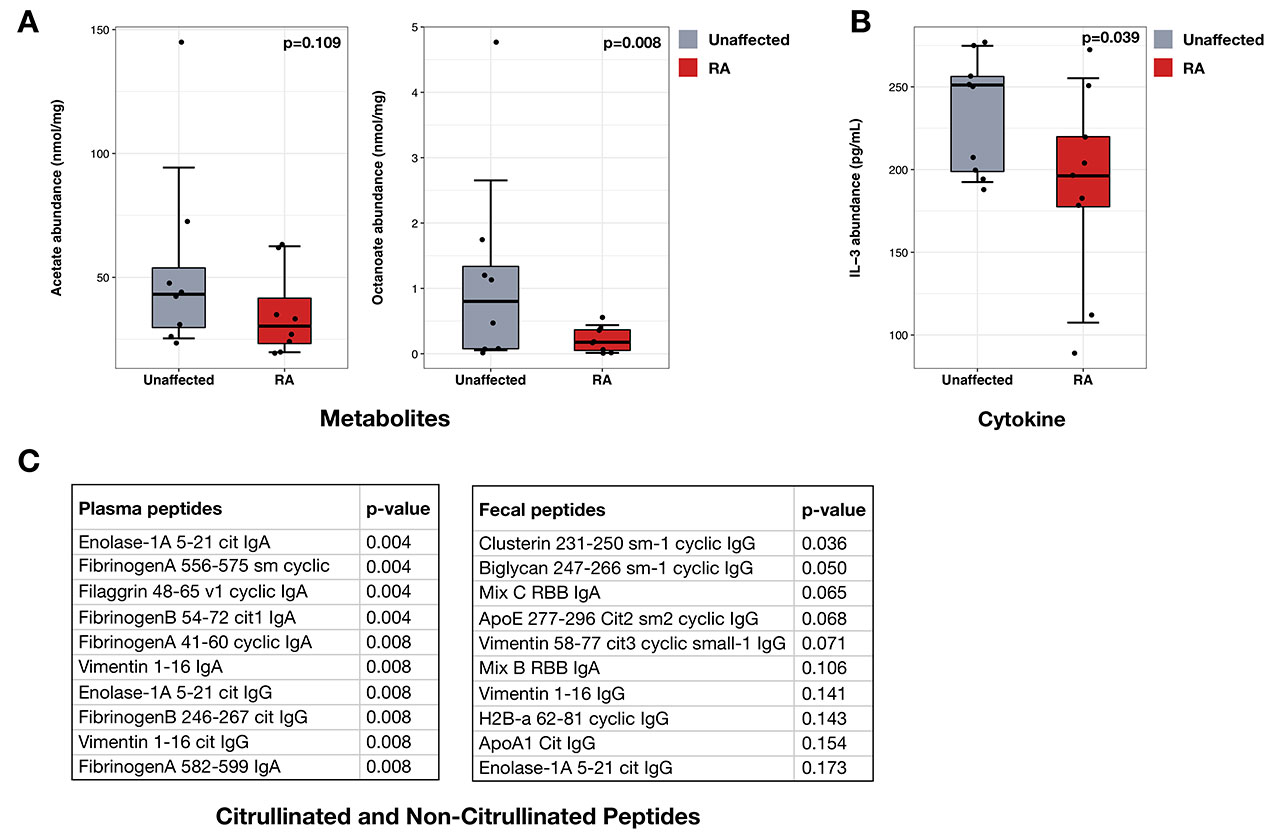Session Information
Session Type: Poster Session (Tuesday)
Session Time: 9:00AM-11:00AM
Background/Purpose: Although a number of genetic factors, including susceptibility alleles, have been identified in rheumatoid arthritis (RA), the concordance rate in monozygotic (MZ) twins is only 15% (Silman AJ et al, Br J Rheumatol 1993). Given this relatively low rate, environmental factors (including smoking, the microbiome and others) likely play a significant role in disease pathogenesis. Several prior studies have highlighted this relationship. Two examples include oral Porphyromonas gingivalis, which has been implicated in the citrullination of peptides (Hitchon CA et al, J Rheumatol 2010), and intestinal Prevotella copri, which is significantly increased in new-onset RA (Scher JU et al, Elife, 2013). In our study, we sought to further understand this relationship by exploring the microbial, metabolomic and cytokine differences in MZ twins with discordant disease.
Methods: Fecal and blood samples were collected from nine pairs of MZ twins where one sibling was diagnosed with RA and the other unaffected. Fecal samples underwent bacterial DNA extraction, amplification and 16S rRNA gene sequencing. Additionally, gas chromatography mass spectrometry (GC-MS) was used to quantify fecal metabolites and multiplex assays were used to quantify fecal and plasma ACPA autoantigens as well as other cytokines (Sokolove J et al, PLoS One, 2012.). Analysis was performed using R, Quantitative Insights into Microbial Ecology (QIIME) and Linear discriminant analysis Effect Size (LEfSe).
Results: Microbiome analysis revealed no significant differences in overall bacterial alpha or beta diversity between unaffected and RA twins. On average, RA twins had higher relative abundance of Bacteroidales (RA 56.6% vs Unaffected 47.9%) and lower abundance of Clostridiales (RA 34.5% vs Unaffected 42.8%). LEfSe analysis showed differentially higher abundance of Unclassified Veillonellaceae in unaffected twins (p=0.042). Unaffected twins also demonstrated higher levels of fecal octanoate (p=0.008), a medium-chain fatty acid with beneficial immune effects, as well as significantly increased levels of plasma IL-3 (p=0.039). Conversely, several fecal and plasma citrullinated/non-citrullinated peptides were significantly higher in RA twins compared to their unaffected siblings (p< 0.05).
Conclusion: We characterized differences in the bacterial microbiome, metabolites, cytokines and citrullinated/non-citrullinated peptides in MZ twins discordant for RA. We found changes in the abundance of particular taxa, as well as higher levels of octanoate and IL-3 in unaffected twins, further suggesting the possibility that the initial citrullination and autoimmune events in this disease may occur in the intestinal mucosa. Understanding the immune mechanisms orchestrated by the gut microbiota and their downstream effects may ultimately shed light on the pathogenesis of RA beyond genetic susceptibility and allow us to potentially alter the course of disease development and progression.
To cite this abstract in AMA style:
Manasson J, Sokolove J, Lahey L, Heguy A, Ubeda C, Scher J. Beyond Genes—a Multi-omic Analysis of Monozygotic Twins Discordant for Rheumatoid Arthritis [abstract]. Arthritis Rheumatol. 2019; 71 (suppl 10). https://acrabstracts.org/abstract/beyond-genes-a-multi-omic-analysis-of-monozygotic-twins-discordant-for-rheumatoid-arthritis/. Accessed .« Back to 2019 ACR/ARP Annual Meeting
ACR Meeting Abstracts - https://acrabstracts.org/abstract/beyond-genes-a-multi-omic-analysis-of-monozygotic-twins-discordant-for-rheumatoid-arthritis/


